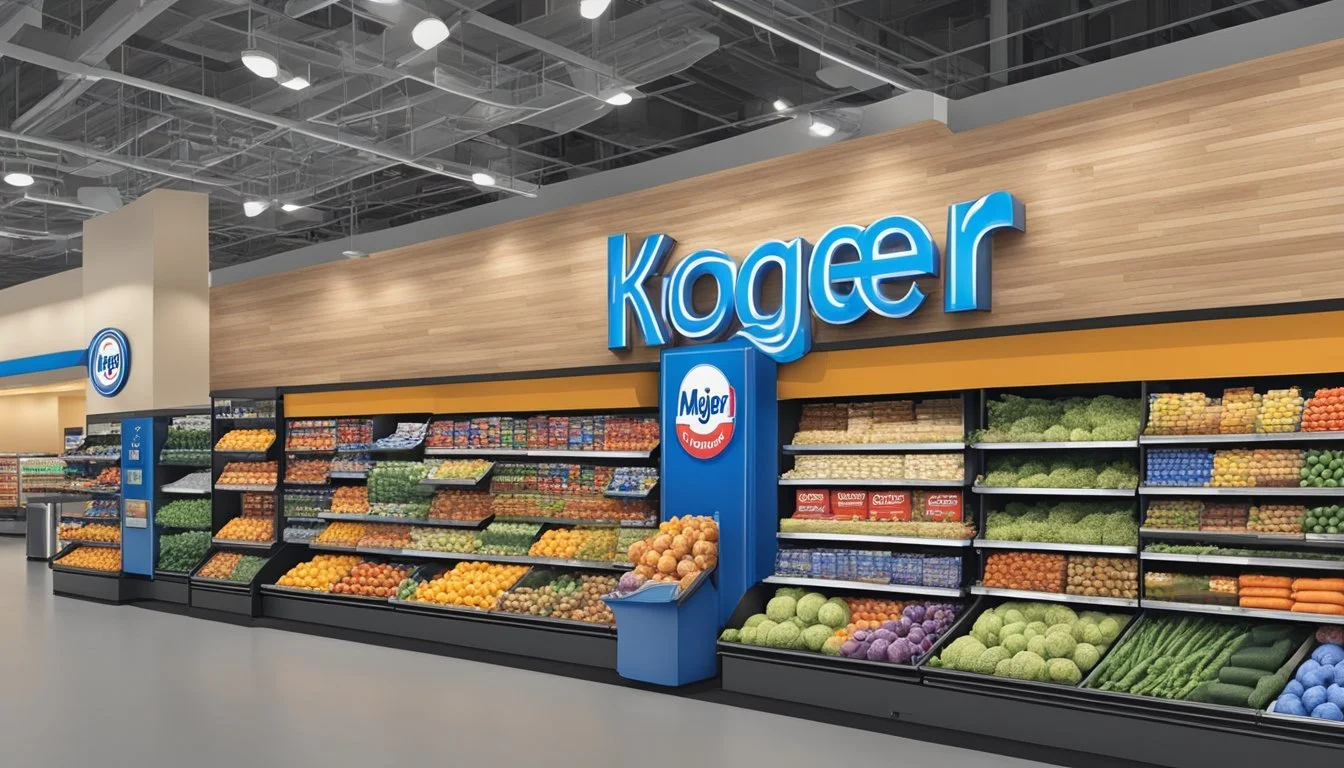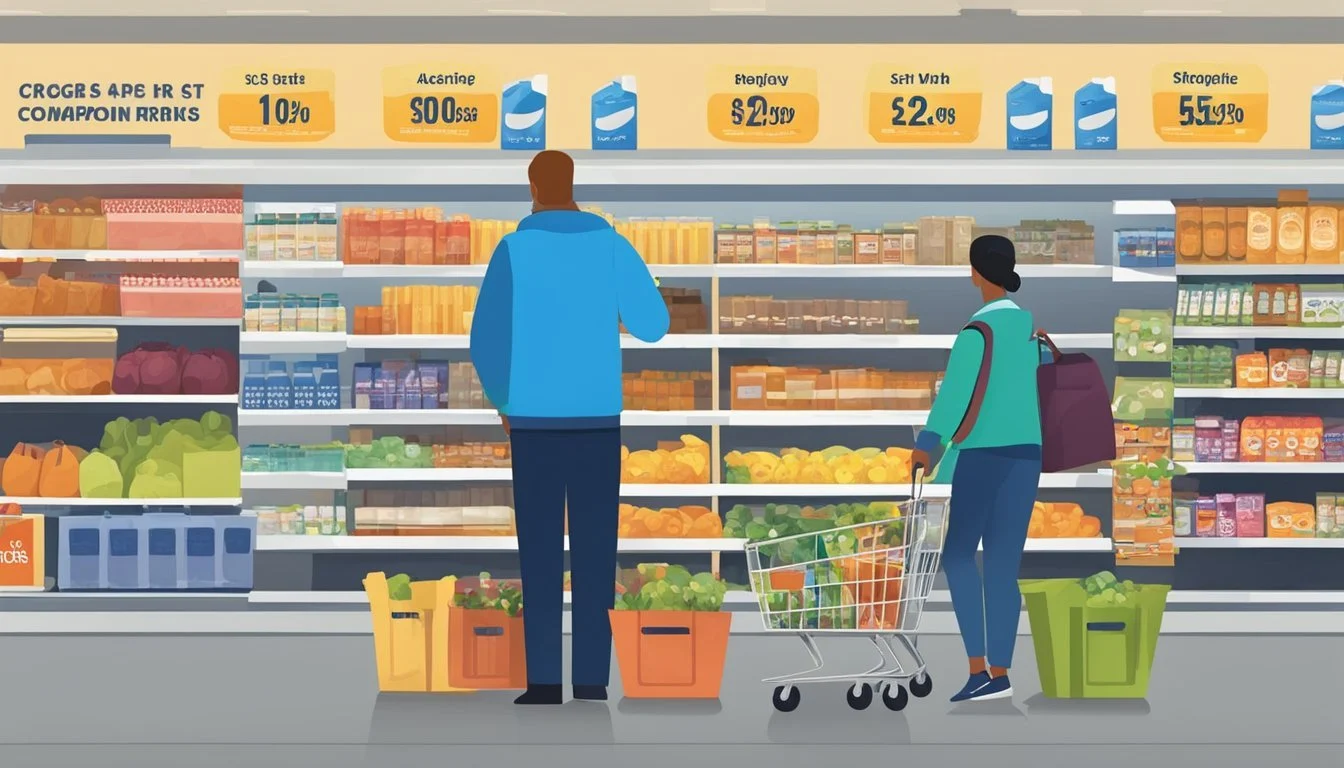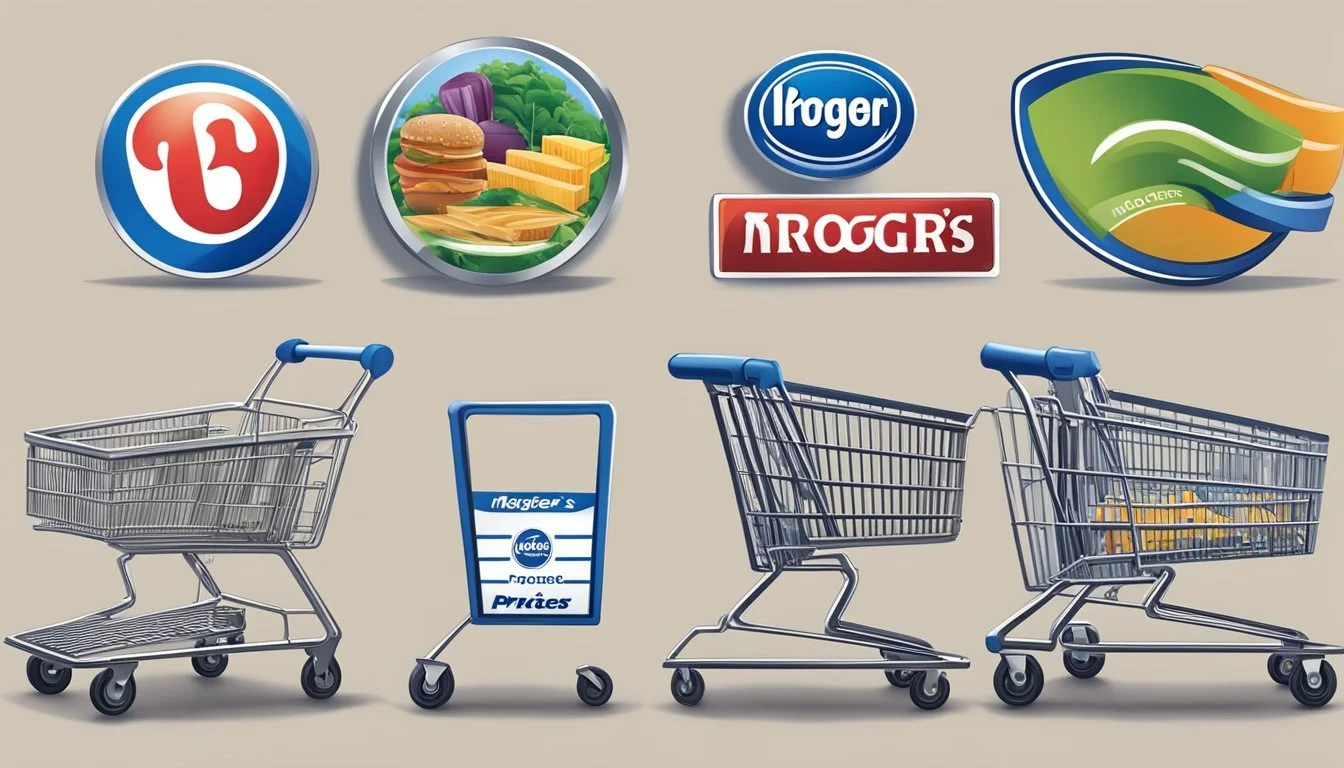Is Kroger Cheaper Than Meijer?
Analyzing Grocery Pricing Trends
Part of Our Grocery Store Guide with Details on Kroger Prices and Meijer Prices
When it comes to grocery shopping, price is often a significant consideration for many consumers. Kroger and Meijer are two prominent grocery chains that operate in several states, often competing for customers by offering a wide variety of products at different price points. Deciding whether Kroger is cheaper than Meijer requires a careful price comparison across various departments like produce, meat, and pantry staples.
Kroger, with more than 2,400 stores nationwide, has the advantage of scale, which may contribute to its ability to offer lower prices due to higher purchasing power. The chain's extensive reach and larger number of stores are factors that can affect their pricing strategy and economies of scale. Meijer, on the other hand, operates approximately 240 stores and is known for its hybrid model that combines grocery with department store offerings, reminiscent of big box retailers like Walmart.
Price comparison between Kroger and Meijer may not yield a straightforward answer, as it can vary based on product type, brand, and region. In some cases, Kroger has been noted to be the more budget-friendly option, while certain categories of products, such as meats, have been found to be cheaper at Meijer in some instances. Consumers might find that the overall shopping experience, including sales, discounts, product quality, and store brand offerings, plays a crucial role in determining which store offers the best value for their grocery shopping needs.
Overall Price Comparison
When comparing Kroger and Meijer, consumers may note variances in pricing that can impact their shopping decisions. Factors such as sales and discounts play into the final costs, while the average cost of a basket of groceries provides a tangible way to measure which retailer offers lower prices.
Factors Affecting Prices
The prices at Kroger and Meijer are subject to several influential factors. Kroger has a vast network of stores, leading to significant purchasing power which could result in lower prices for consumers. In contrast, Meijer's store count is smaller, which can affect its pricing dynamics. Both retailers offer sales and discounts that may vary by location and season, influencing the overall shopping cost.
Purchasing Power: Kroger, with over 2,000 stores, may offer more competitive pricing due to bulk purchasing.
Store Count: Meijer operates around 240 stores, which may limit bargaining leverage with suppliers.
Sales and Discounts: Both Kroger and Meijer have sales that can substantially lower the price of groceries.
Average Basket Cost
To assess value, examining the average cost of a basket containing a mix of everyday items is insightful. A comparison has shown that Kroger's total basket cost can be lower than Meijer's by a thin margin - around 4%. This figure was derived from an example where Kroger's basket totaled $92.07 versus Meijer's at $95.88.
Kroger's Average: A typical basket of groceries may cost around $92.07.
Meijer's Average: The same selection of items might total approximately $95.88.
It is important to note that prices can fluctuate and vary by location; what applies in one region may not hold true in another. Regular shoppers may benefit from tracking sales and being mindful of discounts, which can significantly impact the overall cost of groceries at both Kroger and Meijer.
Product Category Analysis
This section meticulously examines the price comparison between Kroger and Meijer across different grocery categories.
Produce Section Comparison
At Kroger, shoppers generally find lower prices on fruits and vegetables. The store frequently offers deals and discounts on produce, which can lead to significant savings. In contrast, while Meijer might have slightly higher prices in the produce section, customers often praise the chain for higher-quality produce.
Meat Counter Comparison
Meijer's meat counter tends to offer more competitive prices, with customers able to save on essential items like ground beef. For example, shoppers might find ground beef priced at $3.49 per pound at Meijer while it could be $3.69 per pound at Kroger. However, at Kroger, customers might receive slightly more meat, with packages often weighing more.
Deli and Dairy Section Comparison
The deli and dairy sections at both stores are competitively priced, but each has its strengths. Kroger often provides cost savings on items like milk and eggs, which can play a critical role in a household's weekly budget. Meijer can be the go-to for specialty cheeses and deli meats, but may not always be the least expensive option.
Dry Goods and Pantry Items
When comparing pantry staples like pasta, brown sugar, salsa, white rice, and condiments, Kroger frequently emerges as the more affordable option overall. For instance, white rice might be found at $0.99 for a one-pound bag at Kroger, compared to $1.19 at Meijer. Shoppers looking to stock up on pantry essentials without overspending can lean towards Kroger for better deals.
Store Brand Quality and Options
When comparing Kroger and Meijer, the quality and variety of store brand products play a significant role in consumer choice. Each retailer offers its own line of substitutes to national brands as well as a selection of organic and natural products, catering to a diverse range of shopper preferences.
Assessing Store Brand Substitutes
Kroger and Meijer both provide a wide array of store brand products positioned as more affordable alternatives to national brands. Shoppers often find these options across various departments, from pantry staples to frozen foods. Kroger's store brand items are reputed for their affordability, which appeals to budget-conscious consumers. Meanwhile, Meijer's emphasis on quality, especially with the Meijer Naturals and Meijer Organics lines, tends to attract shoppers looking for premium options without the high price tag associated with national brands.
Kroger:
Focus: Affordability
Reputation: Cost-effective substitutes
Meijer:
Focus: Quality
Lines: Meijer Naturals, Meijer Organics
Reputation: Premium quality options
Organic and Natural Product Lines
Both retailers also offer organic and natural selections that cater to the growing demand for healthier and environmentally conscious food choices. Kroger features an extensive range of organic products, while Meijer prides itself on its Meijer Organics products, which adhere to strict USDA organic standards. Consumers are increasingly attentive to these offerings, associating the availability of organic and natural products with a retailer's commitment to quality.
Kroger:
Availability: Extensive organic selection
Perception: Commitment to diverse dietary preferences
Meijer:
Specialty: Meijer Organics, USDA organic compliant
Perception: Aligned with consumer health and eco-friendliness
Promotional Offers and Discounts
When comparing Kroger and Meijer, their approach to promotional offers and discounts plays a significant role in overall savings for customers. Both retailers deploy coupons, weekly ads, and loyalty programs to entice shoppers with potential cost reductions on their purchases.
Coupons and Weekly Ads
Kroger and Meijer both utilize coupons to attract consumers. Kroger offers a variety of digital coupons that customers can easily apply to their purchases through the Kroger app or website. Weekly ads are also a mainstay, providing discounted prices on a range of products which frequently rotate to cover different categories.
Kroger Digital Coupons: Easily accessible through Kroger's app or website
Weekly Ads: Highlight discounts on numerous products, updated regularly
Meijer similarly provides shoppers with substantial savings opportunities through their Meijer mPerks program which features digital coupons. Meijer's weekly ads offer insights into the current sales across different departments in their stores.
Meijer mPerks: Digital coupon system with personalized offers
Weekly Ads: Current sales information available online and in-store
Loyalty Programs
Kroger's loyalty program is a robust system designed to reward repeat customers. It offers benefits such as fuel points, which can lead to significant savings at Kroger gas stations. These points are accrued with each purchase, multiplying the savings potential over time.
Fuel Points: Earned with each purchase and redeemable at Kroger gas stations
Meijer's loyalty offering, the mPerks program, not only provides coupon access but also tracks customers' purchases to offer tailored rewards. They often release special promotions that can stack with other discounts for additional savings.
mPerks Rewards: Tracks purchases for personalized offers and additional promotional events
By strategically utilizing the promotional offers and discounts at Kroger and Meijer, customers can dramatically reduce their grocery bills. It's important for shoppers to stay informed about the latest deals available through these programs to maximize their savings.
Shopping Experience and Convenience
When comparing Kroger and Meijer, shoppers notice differences in store layout, checkout efficiency, online services, and operating hours, all of which contribute to the overall shopping experience.
In-Store Navigation and Organization
Meijer stores are typically designed for one-stop shopping, offering a wide variety of items beyond groceries, such as electronics, clothing, and home goods. This diversity means the stores are often larger, which may affect in-store navigation. Kroger focuses more on the grocery aspect, potentially making it easier for shoppers to find and access food items quickly due to its more traditional grocery store layout.
Checkout Efficiency
Both Kroger and Meijer aim to maintain efficient checkout lines to minimize waiting times. Kroger has invested in technology such as self-checkout stations and Scan, Bag, Go services to speed up the checkout process. Meijer may have comparable checkout options, but the efficiency can vary depending on location and time of day.
Online Shopping and Delivery Services
Kroger and Meijer offer online shopping solutions to enhance their service. Kroger has partnered with Instacart for delivery, which allows customers to receive their groceries without visiting the store. Meijer also provides delivery and curbside pickup options, ensuring convenience for customers who prefer to shop remotely.
Operating Hours
Shoppers value stores with flexible hours that fit into their schedules. Both Kroger and Meijer usually offer extended operating hours, with some locations open 24/7. However, shoppers should verify the hours for their local stores, as they can differ based on location and holidays.
Geographic Accessibility
When considering the geographic reach of Kroger and Meijer, Kroger boasts a substantial presence with over 2,000 stores spanning numerous states. Its expansive network means a broader demographic has access to its locations. Specifically, Kroger has made its mark across regions that include Ohio, Indiana, and Kentucky among others.
Meijer, on the other hand, operates a smaller network with approximately 265 stores. Though fewer in number, Meijer stores are strategically located. They serve customers primarily in the Midwest, with a significant presence in Michigan, Ohio, Indiana, and Wisconsin. Notably, Meijer's genesis took place in Grand Rapids, Michigan, where it still maintains a robust footprint.
For residents within these states, both retailers are easily accessible. The concentration of stores in Midwest states like Michigan and Ohio provides numerous shopping options. Here's a breakdown of store presence in the key states mentioned:
Ohio: Both Kroger and Meijer have strong store counts.
Indiana: Both brands are well-represented.
Kentucky: Kroger has a dominant presence.
Michigan: Meijer is deeply rooted given its origin.
Wisconsin: Meijer presence is noteworthy.
Overall, Kroger's national reach is broader, offering more locations for a diverse range of consumers, while Meijer maintains a solid base in the Midwest, particularly in states like Michigan and Wisconsin where it's known for its local significance and specific community ties.
Corporate Policies and Business Models
Exploring the corporate strategies of Kroger and Meijer reveals how their different histories and customer-oriented policies have shaped their respective business models.
Company History and Expansion
Kroger, founded in 1883 and headquartered in Cincinnati, Ohio, stands as one of the largest supermarket chains in the United States. It operates in numerous states, boasting significant purchasing power because of its expansive network of stores, fuel centers, and online platforms. Over the years, Kroger has grown through a series of acquisitions, which has enabled the company to expand its national footprint.
Meijer, by comparison, started as a family-owned grocery in 1934. It is still privately-owned and has its headquarters in Walker, Michigan. As a pioneer of the supercenter concept, Meijer operates in a smaller number of states compared to Kroger. However, its format combines groceries with department store goods, offering a wide one-stop shopping experience to its customers.
Store Policies and Customer Service
Store policies at Kroger are designed to enhance the customer experience through quality service and competitive pricing. Kroger implements this through customer-oriented service policies, online shopping options, and a strong loyalty program.
In contrast, Meijer applies a similar focus but as a privately-owned entity, the company may be more flexible in adapting their store policies to local markets. Their service model emphasizes the convenience of an expansive product range, aligning with the needs of their customer base. The company is recognized for its service and commitment to the community.
Both Kroger and Meijer continuously evaluate and adapt their business models and store policies to meet evolving consumer demands, which has implications for their growth strategies and customer service delivery.
Industry Context
In the dynamic landscape of grocery retail, Kroger and Meijer face stiff competition. Not only do they compete with each other in the Midwest, but also with a variety of other grocery chains and supercenters.
Comparison with Other Grocery Chains
Kroger and Meijer, both established in the Midwest, compete within a dense field of grocery chains, from discount-oriented Aldi to the premium offerings of Whole Foods. Supercenters such as Walmart, and membership-based warehouses like Costco, expand the options for consumers, influencing pricing strategies across all formats. Amazon, with its acquisition of Whole Foods and expansion into online grocery delivery, adds to the competitive tension.
Noteworthy is that Kroger covers a broad spectrum by also operating under multiple banners like Fred Meyer and Harris Teeter, catering to different market segments. Target is also a significant player, often cited for its competitive meat prices. Against this backdrop, smaller but popular chains such as Trader Joe’s carve out their own niche by focusing on quality and private-label products.
Market Trends and Consumer Behavior
Market trends have shown a steady consumer preference for value alongside quality, a balance that supermarkets strive to achieve. Supercenters, integrating groceries and general merchandise, have found success attracting budget-conscious shoppers who value the convenience of one-stop shopping.
Hypermarket formats, combining supercenters and more extensive grocery areas, are popular in the Midwest where both Kroger and Meijer are influential. Amidst this, understanding consumer behavior is crucial, with price sensitivity being a key determinant in store choice. The rise of online shopping has prompted players like Amazon to innovate, putting pressure on traditional supermarkets to adapt their business models. The competition is nuanced, with each chain offering a different mix of price, convenience, and product variety to secure their market share.
Conclusion
When families aim to save money on groceries while seeking a quality shopping experience, the choice between Kroger and Meijer is pivotal. Kroger often provides the lowest prices, essential for budget-conscious consumers. However, the price difference is not universally applicable across all products.
Meijer tends to offer a better meat selection, sourcing from local providers when possible which may appeal to shoppers prioritizing meat quality and the support of local sources. In contrast, Kroger is often acknowledged for cheap food options that do not compromise on the healthiness, catering to a broad customer base focused on economical and healthy grocery shopping.
Customers looking for a one-stop shop with a variety of products might lean towards Meijer, which can offer an experience similar to larger department stores. Kroger, with a larger number of stores, might be more accessible for many shoppers, and ratings indicate a favorable shopping experience overall.










